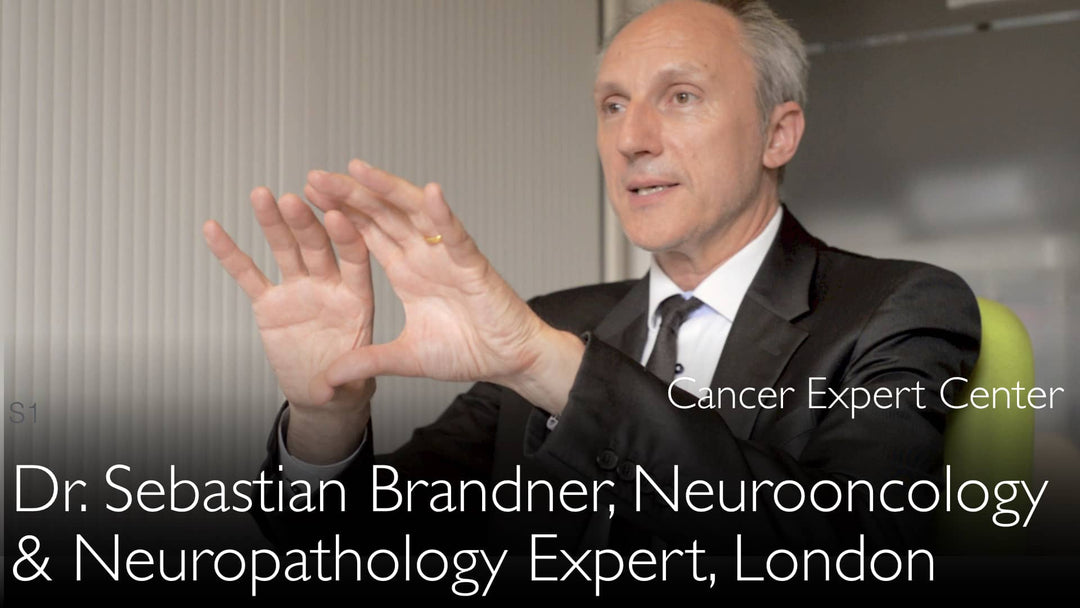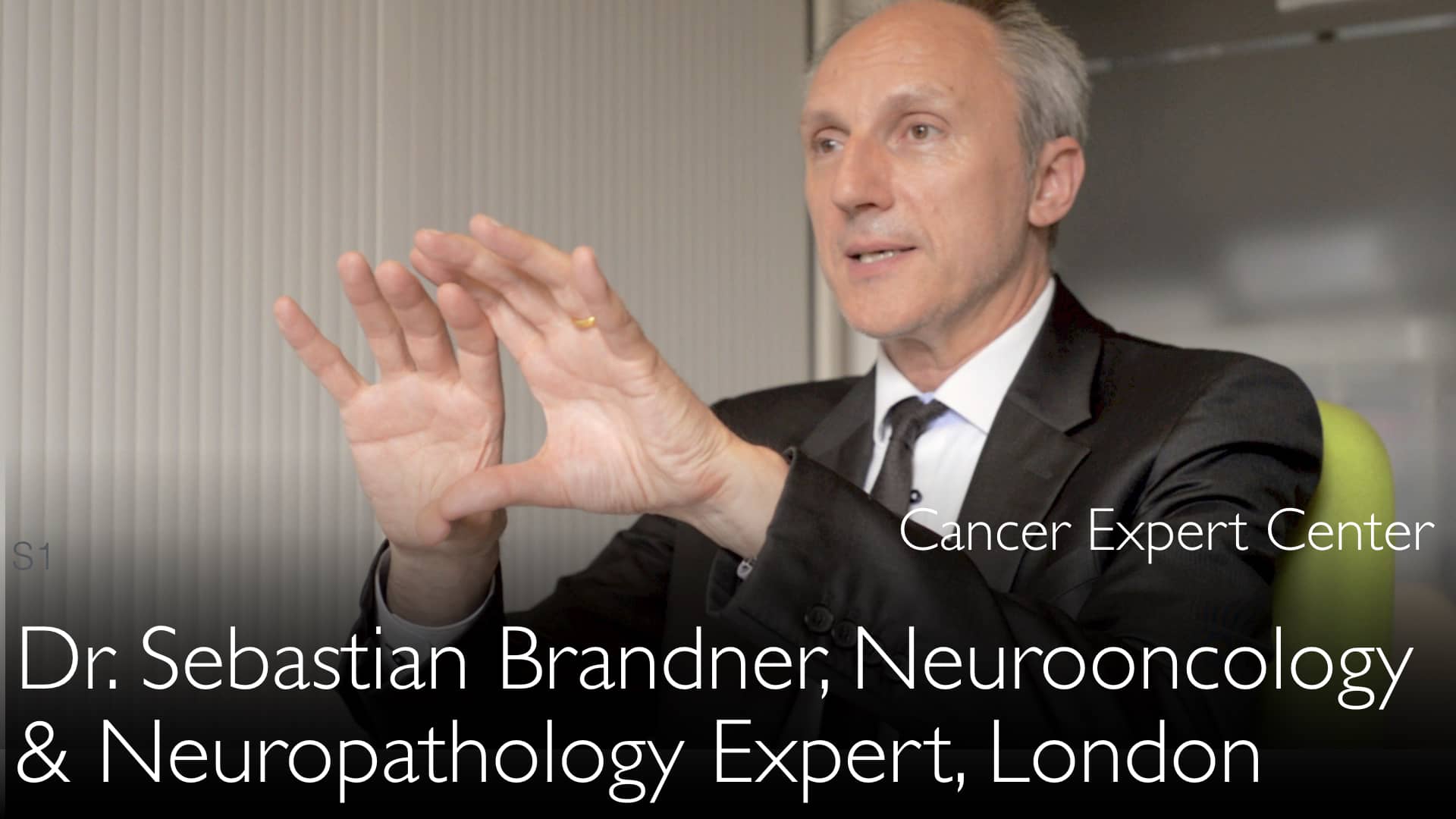뇌종양 신경병리학 및 신경퇴행성 질환 분야의 선도적 전문가인 Sebastian Brandner 박사(MD)가 분자 진단이 뇌종양 분류를 어떻게 혁신하고 있는지 설명합니다. 런던 대학교 칼리지(University College London) 신경병리학과장인 그는 뇌종양 기원에 관한 선구적 연구와 WHO 분류 체계에 대한 기여를 소개하며, 더 나은 환자 결과를 위한 정밀 진단의 중요성에 대한 통찰을 제시합니다.
분자 신경병리학을 통한 뇌종양 진단의 발전
목차 바로가기
뇌종양 분류의 분자 혁명
세바스찬 브랜드너 박사는 University College London에서 분자 및 유전학적 방법을 신경병리학 실무에 통합하는 선구적 역할을 해왔습니다. 그의 연구는 기존 현미경 검사를 넘어 DNA 및 RNA 분석을 포함하는 방식으로 뇌종양 분류 방식을 혁신적으로 바꾸었습니다. 이 정밀의학적 접근법은 치료 결정에 직접 영향을 미치는 더 정확한 진단을 가능하게 합니다.
브랜드너 박사가 이끄는 Queen Square 신경병리학과는 이러한 첨단 기술을 활용해 매년 2,000건 이상의 뇌종양 사례를 진단합니다. 그들의 분자진단 실험실은 국가 기준 센터로 기능하며, WHO 지침에 포함된 뇌종양 분류 표준을 마련했습니다.
줄기세포 연구와 뇌종양 기원
브랜드너 박사의 획기적인 연구는 성인 뇌 줄기세포와 전구세포가 어떻게 뇌종양으로 전환될 수 있는지를 입증했습니다. 그의 연구팀은 이러한 세포 경로를 규명한 250편 이상의 동료 검토 논문을 발표했으며, 특히 교종과 수모세포종에 주목했습니다. 이 연구는 현재 임상 진단에 활용되는 중요한 생체표지자를 발견하는 계기가 되었습니다.
UCL 신경학연구소에서 브랜드너 박사는 신경병리학과 신경외과학, 종양학을 연결하는 협력 연구 프로그램을 설립했습니다. 종양 세포 기원에 대한 그의 발견은 뇌암의 특정 분자 경로를 차단하는 표적 치료법 개발에 직접 기여했습니다.
신경병리학의 학문적 리더십
2004년 신경병리학과장으로 부임한 이후, 세바스찬 브랜드너 박사는 University College London에 영국 최대 규모의 학문적 신경병리학 부서를 구축했습니다. 이 학과는 유럽 전역에서 전문의를 양성하면서 뇌종양과 신경퇴행성 질환을 아우르는 활발한 연구를 진행하고 있습니다.
브랜드너 박사의 경력은 취리히에서 신경병리학을 전문화하기 전, 괴팅엔에서 신경외과학 수련을 포함합니다. 이러한 임상 경험은 진단 신경병리학에 대한 그의 환자 중심 접근법에 영향을 미쳐, 실험실 결과가 치료 결정으로 직접 이어지도록 합니다.
WHO 분류 체계 기여
브랜드너 박사는 2016년 WHO 중추신경계 종양 분류에서 두 개의 핵심 장을 공동 집필했습니다. 그의 전문성은 현미경적 외관뿐 아니라 분자 특성에 기반한 뇌종양 범주 재정의에 기여했습니다. 이 분류 체계는 현재 전 세계 치료 프로토콜의 기준이 되고 있습니다.
브랜드너 박사의 권위 있는 교과서 《Neuropathology》 제3판은 수련의와 의사들을 위한 표준 참고 자료로 사용됩니다. 이 책은 전통적인 조직병리학과 현대 분자진단을 통합해 포괄적인 질병 이해를 제공합니다.
프리온병 신경병리학 전문성
뇌종양을 넘어, 세바스찬 브랜드너 박사는 크로이츠펠트-야콥병을 포함한 프리온병 연구에서도 국제적으로 인정받고 있습니다. 그의 신경병리학 팀은 이러한 희귀 신경퇴행성 질환의 진단 기술을 개선해 환자와 가족의 진단 불확실성을 줄였습니다.
이 실험실의 뇌종양과 프리온병에 대한 이중 초점은 두 질환이 모두 정교한 분자 분석을 필요로 하므로 독특한 진단 시너지를 창출합니다. 브랜드너 박사의 팀은 뇌종양 업무와 함께 매년 500건 이상의 신경퇴행성 질환 사례를 다루고 있습니다.
최첨단 진단 기술
브랜드너 박사의 지도 아래, UCL 신경병리학과는 차세대 염기서열 분석을 뇌종양 진단에 도입했습니다. 이 기술은 수백 개의 유전자 표지자를 동시에 식별해 치료 반응을 예측하는 정확한 종양 아형 분류를 가능하게 합니다.
이 학과는 실험실 발견을 임상 검사로 전환하는 활발한 연구 파이프라인을 유지하고 있습니다. 현재 진행 중인 프로젝트는 뇌종양을 위한 액체 생검 기술과 인공지능 지원 병리 이미지 분석에 집중되어 있으며, 이는 브랜드너 박사의 진단 신경병리학에서의 혁신 전통을 이어가고 있습니다.
전체 대본
안톤 티토프 박사: 런던에서 안녕하세요! 오늘은 University College London 신경학연구소 신경병리학과 및 신경퇴행성과학과장인 세바스찬 브랜드너 교수와 함께합니다.
세바스찬 브랜드너 박사: 브랜드너 교수는 분자 및 유전학적 방법을 활용한 정밀 뇌종양 진단 분야의 세계적 권위자입니다. 또한 프리온 뇌질환의 신경병리학 분야에서도 국제적으로 인정받고 있습니다.
브랜드너 박사는 독일 괴팅엔 대학교에서 의학 학위를 취득했습니다. 신경외과학에서 경력을 쌓은 후, 취리히 대학병원 신경병리학연구소에서 컨설턴트 신경병리학자가 되었습니다.
2001년에 세바스찬 브랜드너 교수는 University College London 신경학연구소로 자리를 옮겼습니다. 2004년에는 Queen Square에서 신경병리학과장 및 신경병리학과장으로 임명되어 영국 최대 규모의 학문적 신경병리학 부서를 이끌게 되었습니다.
브랜드너 교수는 국제 동료 검토 의학 학술지에 250편 이상의 논문을 발표했습니다. 그의 연구는 성인 뇌의 줄기세포와 전구세포가 어떻게 뇌종양을 발생시키는지, 그리고 이러한 종양이 인간 질환과 어떻게 연관되는지를 밝혀냈습니다.
그는 뇌암 연구를 위한 주요 팀을 구성하고 UCL 내에서 긴밀한 협력 관계를 구축했습니다. 브랜드너 교수는 현재 제3판까지 출간된 주요 도서 《Neuropathology》의 공동 저자이며, 2016년 WHO 뇌종양 분류에서 두 장을 공동 집필했습니다.
안톤 티토프 박사: 브랜드너 교수님, 안녕하세요! 대화에 응해주셔서 대단히 감사합니다!
세바스찬 브랜드너 박사: 안녕하세요!





